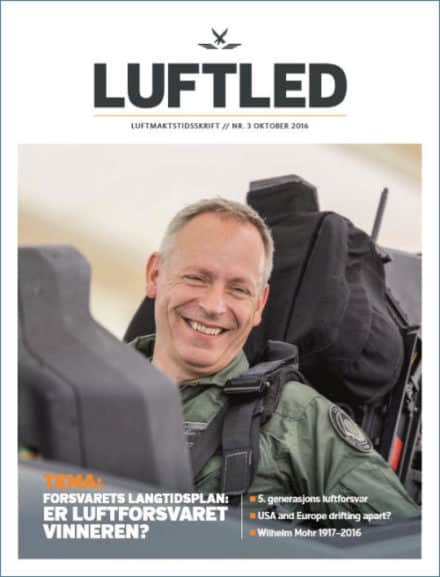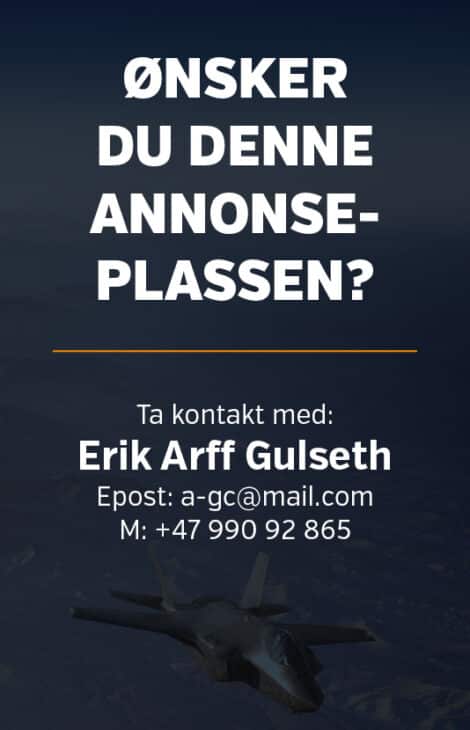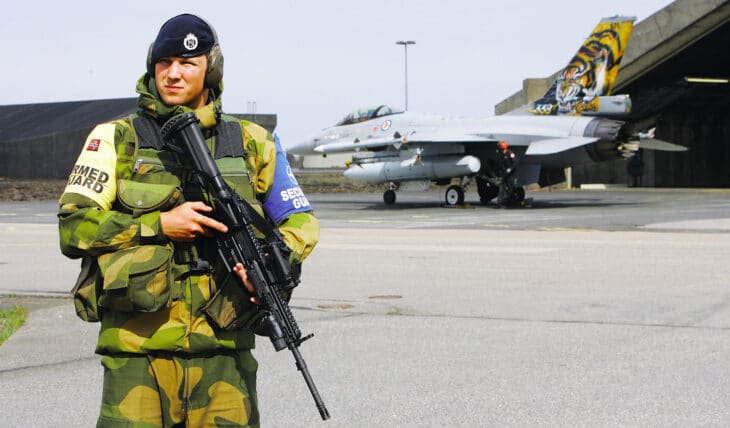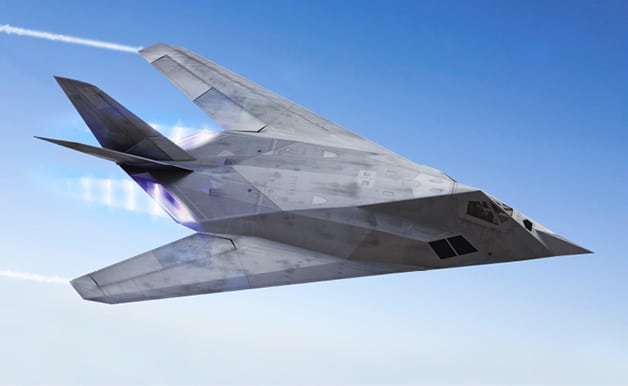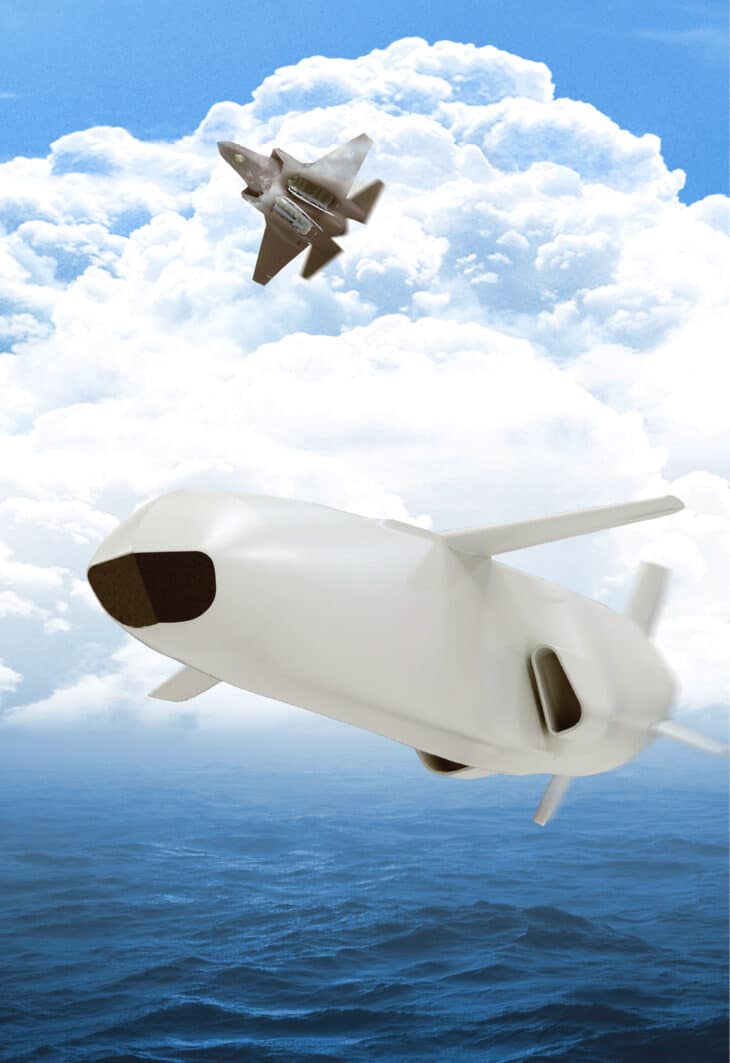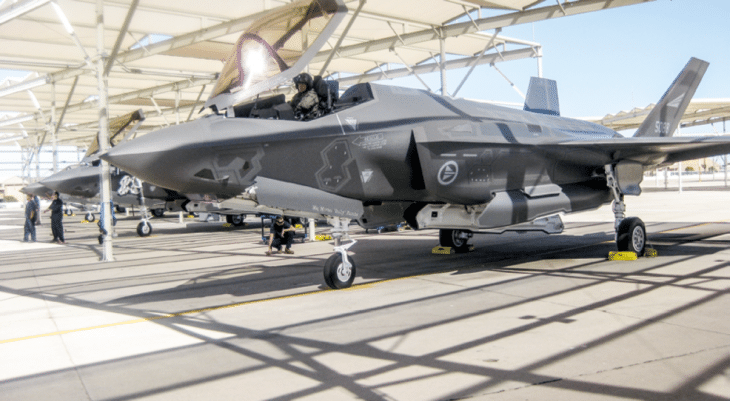Drifting apart? The future transatlantic relations
Talking about the transatlantic relations these days is a deeply depressing affair, like much what we do in life. My point of departure is an article I wrote 15 years ago for the Chatham House journal International Affairs, titled ‘US and Europe heading for divorce’.
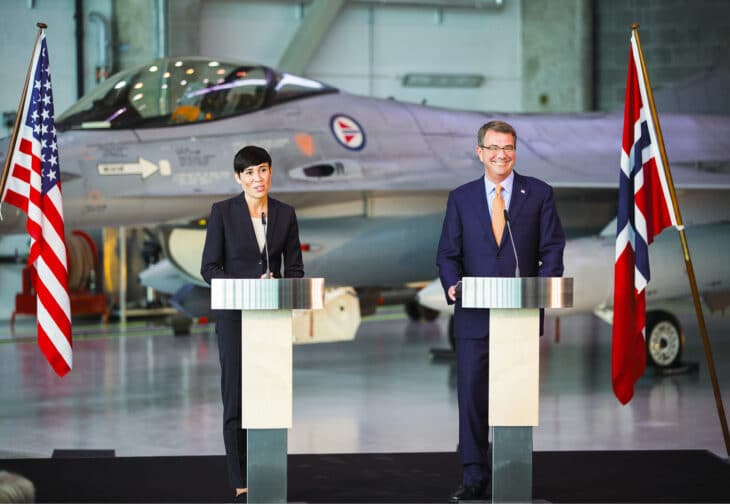
At the time, I wrote about the main differences between the United States and Europe that had emerged, which were accentuated by the election of George W. Bush and really came to the fore in the Iraq War one year later. However, I argued in the end that NATO had become like an old house in which there was an old couple who were not living on the same floor, certainly not sleeping in the same bed, and were not really talking to each other, but at least they still lived in the same house. However, then the couple did start to talk, but their conversations were about the possibility of divorce. This drifting has been ongoing for a long time and the talk of ‘divorce’ is coming at a time when the alliance cannot afford it.
The real problem is that the challenges of today are challenges that we have to face together, and if we do not, the problem will not just be a matter for the house and the state of the relationship but something much deeper.
The challenge in 2016 and beyond is not only how we keep the alliance together, which frankly is going to be a very hard job in itself. Importantly, it concerns how we are going to forge a coherent and effective strategy to deal with the many challenges that we are facing. The challenges have been large in number, and in some ways worse than the Cold War.
The resurgence of Russia
The first challenge we are facing is the resurgence of Russia, a Russia that has decided that the rules are there for others, but not for itself. The most important rule being broken is that one does not change borders through the use of force. This rule is at the core of the systems of the United Nations and European security. As agreed in 1975 in Helsinki, and reaffirmed in Paris in 1990, that rule is fine for every other country in Europe, and indeed the world, but not for Russia when it comes to Crimea and the still secret invasion of Ukraine.
The threat of ISIS
In addition to resurgent Russia acting in military ways that are deeply disquieting, we also have the threat of terrorism coming from the east and south of Europe. ISIS poses a threat to Europe through its ability to attract large numbers of people from European countries, only to be sent back, as we saw in the Paris attacks in 2015, thus posing a direct threat to civilians in our own countries. The threat is exceedingly difficult to counter and to deal with as long as there is such a large base for recruitment and training. Even as we are succeeding to some extent in dealing with the ISIS threat in Syria and Iraq, that same thread is now spreading to other parts of the world, such as Libya and Afghanistan. The threat is not only spreading geographically, but is also increasingly internal, particularly to our European countries and to some extent to the United States. In the United States, the director of the FBI has confirmed that plots by ISIS sympathizers have been uncovered and dealt with in all 50 states. However, it is widely known that every plot that is uncovered and dealt with is only one of many that are not uncovered and potentially not dealt with. We have seen plots and strikes here in Europe – in Germany, France, the UK, Spain, and elsewhere – reminding us that this is a threat we are living with today and will be present tomorrow.
The challenge in 2016 and beyond is not only how we keep the alliance together, which frankly is going to be a very hard job in itself. Importantly, it concerns how we are going to forge a coherent and effective strategy to deal with the many challenges that we are facing
Migrants and refugees
The third major challenge we are facing is not unrelated to the terrorism challenges – the challenge of refugees and migrants. More than 1 million migrants and refugees landed on European shores in 2015, and higher numbers are expected in 2016. We are now faced with the reality that the traditional way of dealing with migration and refugees, which is through integration into our societies, is becoming increasingly difficult. The numbers are just too great in order to do this in a way that is stabilizing and effective for the countries that are willing to engage in this way. More disconcertingly, there is no strategy in any European country or in the European Union that seems capable of dealing with those who are already on European territory, let alone those who are about to come. This lack of strategy is overwhelming the European Union as an institution as well as the European countries individually.
Populism and political discontent
The fourth challenge we are facing is that due to the developments relating to the refugees and migrants, particularly the latter, there is growing domestic political discontent throughout Europe as well as the United States. Populism on the Left and the Right is squeezing out what used to be the sensible centre. The populism is gaining strength throughout the European Union, and in the United States. In Greece, the Left has taken over the government through successive elections; in Spain, both the Left and Right are growing increasingly strong and have made it difficult for a viable government to be formed; in Italy the Five Star Movement gained 25% of the votes in the last election; in France’s regional elections more than 28% of the French voters voted for the National Front; and in if elections were to be held for the Dutch Parliament, Mr Wilders would earn more seats than the two governing parties combined. The rise of the Right can be seen in some of Norway’s neighbouring countries, Eastern Europe, and in the United States.
Hence, there is discontent in the United States that is being translated into political populism on both the left and the right, and the one thing that populists do not do is to compromise. As a result, the ability to govern is affected, both when the parties in power are unwilling to compromise and more importantly when they threaten the power, the natural temptation of those who are in power is to be more like them, which has a very bad effect on the nature of politics.
Renationalization of politics
As a result of all of the above-mentioned factors, the biggest challenge we face today is what I would call the renationalization of politics in Europe. In Europe, the pressure on the EU and its institutions is leading individual countries to take matters into their own hands, to turn inwards, not only in a European sense but also more importantly in a national sense.
When the fear of terrorism is combined with the fear of immigrants, countries become even more focused on what can be done nationally, as demonstrated by the French. After the Paris attacks in 2015, the reaction of the French has understandably not been to want to expand the problem, making it one for the European Union, but to focus on what France can do at home. If those developments had been left for the European Union to deal with, there would have been little doubt as to why, when one looks at the recent British debate about whether to stay in the European Union, the forces who wanted Britain to stay had a tough time finding a good argument. As a result, something that was unthinkable until recently – the UK’s decision to opt out of Europe (“Brexit”) – became a reality. That is another manifestation of what we are seeing, which is not a commitment by Europeans to Europe, but a commitment by Europeans to their own countries.
How has NATO responded?
Thus, the main challenges are Russia, terrorism, migration, populism at home, and the nationalization of politics throughout the Transatlantic Alliance. This raises the question of how NATO has dealt with and responded to these crises. First, I wish to mention a few positive achievements. If Russia thought that by annexing Crimea and invading Ukraine it was going to pose a challenge to European and transatlantic unity, it really miscalculated. This is because the one thing that unified NATO in a way that it has not been unified for quite a long time was the annexation and invasion. It concentrated the minds of NATO in a way that we have not seen for a very long time and in a good way. The idea is that defending all of NATO territory is now as important as it has ever been.
The good news is that it not only has the United States been making changes, but also there has been a reversal of the cuts in British defence spending. There has been a continued increase in French defence spending, albeit mostly focused on internal defence, but increasing its capabilities nonetheless, and Germany has committed to a significant investment over the next 10 years. These trends have been sufficiently extensive that for the first time NATO was able to celebrate that it was making fewer cuts than usual, which is good, but not good enough. If these trends continue there will be some real increases in capabilities after over a decade of underinvestment in European defence.
We need a strong Europe to stand alongside the United States in order to deal with the challenges that we face. If Europe falters, the natural response for the United States will not be to fix it, but rather to tell Europe to fix its own problems, which it created in the first place
The bad news
Finally, I turn to the bad news and the things that keep me awake at night. The European Union is facing an existential crisis for the first time since 1957, when the European Common Market was created. There is a question of whether this institution, which has done so much for so many Europeans in particular and the world in general, will be able to continue as the institution that we have come to rely upon. As previously mentioned, nothing has been more divisive in the European Union than the current migrant and refugee crisis. It is dividing countries internally. For example, in Germany the debate has not really started, yet it has still managed to divide the country. The crisis is also dividing countries between themselves, and leading to the dismantling of the very institutions that make the European Union a union: border control, the Schengen Agreement, and even serious debates in Brussels about the idea of ring-fencing an EU member. Most importantly, there is no end in sight. This is not a problem that is possible to solve today, and it is only going to get worse. There is no strategy or idea on how to deal with it. As a result, the natural temptation is to turn inwards, claiming ‘it does not matter what happens out there as long as we are not affected’. This attitude has a huge consequence for the European Union. Britain’s decision to leave will mean that the European Union will become very different in the future.
In this respect, the transatlantic alliance is relevant. There may have been a day when some Americans thought that it would be a good idea for Europe to be divided, so that we could pick and choose, but those days are gone. We need a strong Europe to stand alongside the United States in order to deal with the challenges that we face. If Europe falters, the natural response for the United States will not be to fix it, but rather to tell Europe to fix its own problems, which it created in the first place. In other words, Europe would be on its own. A divided and renationalized, internally focused Europe is one that is deeply deleterious for European and global security, but it is not something the United States can fix. It has been 70 years since the United States came to the rescue of this continent, and it does not have the political muscle, economic strength, the military means, and fundamentally the interest to resolve a problem that can only really be resolved internally.
About the Author:
President of the Chicago Council on Global Affairs. U.S. Permanent Representative on the Council of NATO, 2009 – 2013. Member of the staff of United States National Security Council (NSC) during the Clinton Administration.
